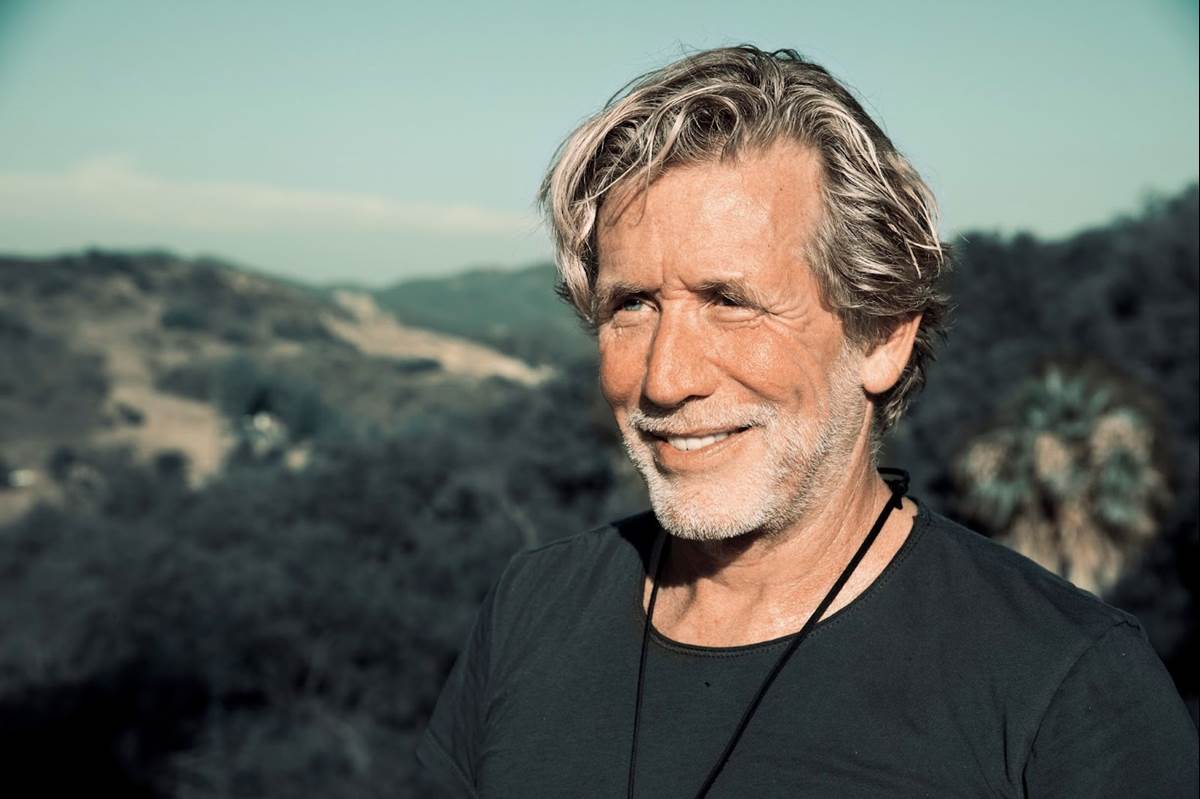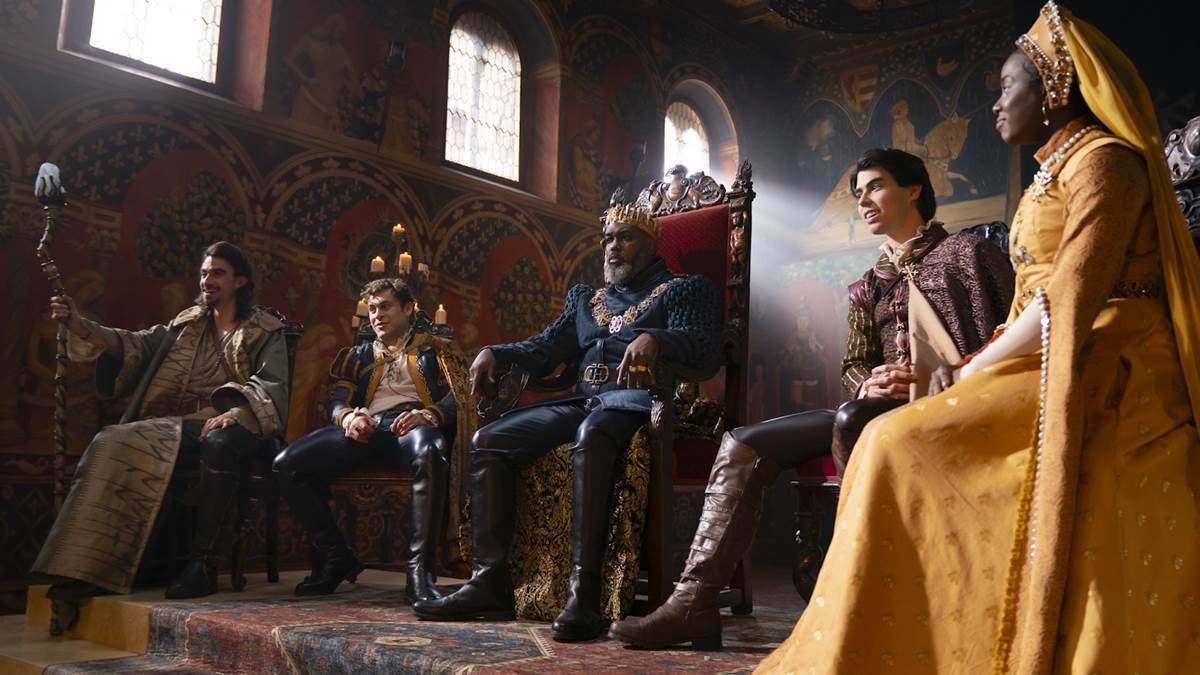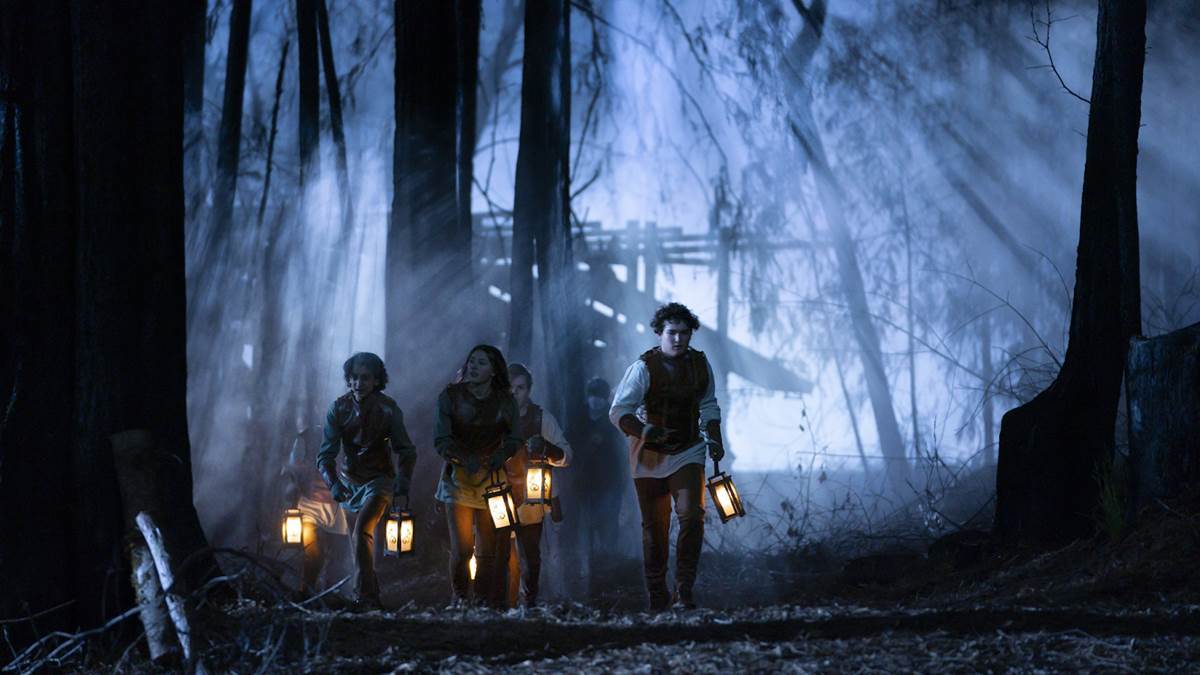In May, a new version of The Quest arrived on Disney+. The hybrid scripted/unscripted competition series pits a group of teenagers together in what our own Tony Betti described as an “elaborate living theater series.”
Recently, we had a chance to chat with the show’s Director of Photography Mark Kohl all about the series and the unique challenges its format entails.
Laughing Place: The Quest is back, a new iteration on Disney+. One thing that I thought was fascinating is that it's a hybrid with a storyline, scripted, plot but also has this reality element. This is a unique show. How did you approach the look of this show from a cinematography point?
Mark Kohl: Well, that's a really interesting question because, when I took on the first one, I mean, it was a learning experience. But when we started with this project, we had two main creative forces. We had the Lord of the Rings people. And then obviously The Amazing Race. And I had two different directors. They're two totally different worlds. Really, the only thing in common they have is a camera. So everything's approached differently. So we had to create basically a movie and then we had to go to what, almost live television. So that required a very different way of approaching everything because we were also shooting this movie type thing on a reality schedule, too.
So there were a lot of elements involved. So as the DP, I had skills in both. I had shot many, many scripted shows, TV shows, movies, and then for Bertram and the team, I had shot a lot of the big competition shows like The Great Escape and the original Quest and all that. So I had experience in both avenues. So originally there was discussion of, we have the scripted portion of it have one look, and then the competition reality portion have a different look. So the viewer didn't get confused. But I started thinking about it and, of course, the word cinematic always comes up. Everybody, "We want this to look cinematic. We want this to look cinematic."
So I really thought a lot about it. And I was on lots of Zoom calls with the creative team. And I basically, we just decided let's make this look like a $200 million movie. Let's just make it look like Lord the Rings and let everybody else figure it out. And also part of the notes we got, I think, from Disney was they didn't want this to feel and look like a reality show in any way. So there's no background packages on the contestants. There's no interviews, there's no OTFs that you get information of how people are feeling or anything about who they are. But we're also working on a streaming platform where we can do character development over the course of several different shows. Not like the network format where we had to identify everybody up front. Basically, this is Timmy from Ohio. He's a math student.
That's a background package. We didn't do any of that. So we came up with little things like visually to build like a fire pit outside of the Fate's Temple. And the kids can come around and just chit chat around the fire and we organically get to start to know who they are. And we built quarter from it. So when we did it cinematically like I said, we wanted to keep it with a very high-end cinematic look. So I went for it by shooting anamorphic. I think this is one of the first shows, ever shot wide screen because I was like, "You know what? This is a high-end show. We're on a streaming platform. Let's break all the rules of regular television."
And we really did. It was kind of difficult because we're so ingrained in having worked for ABC, CBS, and all these other networks. These formats, visuall,y how they're lit, stylistically how the characters are developed with all these things. We had to literally break all the rules. And cinematically went down the rabbit hole of shooting widescreen 240 anamorphic. But every crew member also had to have a dual skillset. We couldn't because there's this world, there's the movie guys. And then there's the TV reality guys. And they're very different. The camera operators have to in competition reality show, they have to learn how to do single camera coverage. They have to get the cutaways by themselves. They know how to do that.
They have to have an instinct. They have to be physically strong to be able to run with the cameras and follow people to get all this stuff. Feature guys don't know how to do that. And then some of the reality competition camera people don't necessarily have the best framing eye. And they don't know how to use a Dolly or a steady cam or a techno crane or these skill sets.
So we had to pick a crew of people that knew both. So guys that could jump on a techno crane and run the wheels and then take the camera off, throw it on their shoulders and chase the kids through the woods at night. And we had to have every crew member, the electrical department, the grip department, the audio department, all of them had to have these multifaceted skill sets so that they could adapt to making a high-end cinematic project at the speed of reality television basically. So we shot eight one-hour episodes in 20 days, which is an insane schedule. But we were really well prepared and it was daunting to say the least. Really, I'm serious and during COVID.
Laughing Place: So speaking on that, I know that there was a change in location to keep it domestic that wasn't originally foreseen. Yet it may have been a blessing in disguise and that it provided that unfortunately recently scorched the section of California that gave it a real ethereal look. Can you talk a little bit about the setting that was used and how that played into the photography element?
Mark Kohl: Oh yeah, yeah. Yeah. The original location was in Austria that we shot in. And when we did it eight years ago for ABC, The Castle looked amazing to the exterior. But the interior didn't really have much. So I think we were going to go back there, but COVID restricted us to find something closer. And anyway, we found this castle in Calistoga, that's actually a vineyard. And honestly, I think it worked out way better. I think it has way better interiors. We could also isolate. It was a small town. So we pretty much were in our own bubble, the crew and everybody took up the whole city. So that worked out really well. And I think it was this job, man. I can't tell you how many times it pushed COVID this, COVID that.
And then we were ready to pull the trigger again and the fires, man. And so I flew up to see what kind of damage, if it had hit the castle. We had heard it hit the castle, how bad it was. And a couple of us went up there and actually it helped us out quite a bit. It was one of those happy accidents, because it burned all the greenery that was all around the forest that was so thick. You probably couldn't even walk through it. And now it became Wizard of Oz The Dark Forest, the trees had the soot on them and the green was all gone and it became a character in the show and we used it a lot as you can tell when we went there. And that actually helped out quite a bit. So like I said, that was a happy accident for sure.
Laughing Place: And one thing that changed from the original version on ABC to this version was you worked with kids or teenagers. Were they patient with what needed to happen? Probably not having much experience of the TV, filmmaking process, were they good partners in all of this?
Mark Kohl: Yeah. I mean I'm coming at it from the cinematic world. But eight years ago it was a different world. People weren't really FaceTiming people, Instagram wasn't that big a deal. So I think cameras around people eight years ago, if there were kids, would've been a very different energy. Right now, people are so used to it and the kids, they are on FaceTime all the time. And so the cameras, I feel like they disappeared to the kids and they really became, of course, I don't know what's in their soul, but it did feel very organic. And that's one of the reasons I think the premise of this show works better now than it did then is because the immersive nature of who we are as humans has changed dramatically.
Between what is us being voyeurs watching a subjective thing on television versus being immersed in it just now, just like you and I, we're conversing through an electronic medium and it's natural. Eight years ago, this would've been the Jetsons or whatever. So that barrier is fading, I think. And that's why I think they accept the fact that these are real kids and that these are real challenges that they had to work through. That it wasn't produced that the drama in the movie portion or in the scripted portion actually pushes this through.
So our job as filmmakers is to make something interesting. Our job is to make you watch to see what happens next. And I think the Quest does that, whatever. That's the goal, right? If things are interesting, we watch. If things are not interesting, we change the channel. You lose the audience. So that's what our goal was in my head. Obviously we were a team, but like, "Is this interesting? Does this keep the viewer engaged? What is cool? What makes something look cool? Don't overthink it, just make it look good and just have it unfold as it's supposed to unfold.
Laughing Place: Well, and you obviously face the challenge that's unique to this show head on with an artistry that we don't expect from a “reality show.” So for those that may want to see more of your work, are there any other projects that you have either recently or coming out that, where they can see? Whether it's on the television or cinematic side?
Mark Kohl: Yeah, sure. I mean, I do lots of commercials and branded content. I have a film coming up in the fall. That's a Western that I'll be shooting. We're going to approach it very like seventies, Sergio Leone, kind of Western big screen. Again, anamorphic kind of thing. So I'll be working on that. I have an IMDb credit list. It's pretty extensive. But I enjoy working on projects that are different. I'm usually the guy that shoots the pilots. I like setting the look of something. I like coming up with new ideas, approaching it differently. I don't like taking over another person's project if you will. And let's be honest, The Quest has so many differences about it that we could just be really… And the producers I worked with were very supportive. They were like, "Just make it look good." And of course we had the best costumes and we had the best locations and all of that. But to answer your question, yeah. I have a website and some other things that I'm up to. Yeah, for sure.
Laughing Place: Well, congratulations on The Quest. It definitely exceeds expectations in terms of it's not necessarily what people think it is. Hopefully everyone has a chance to watch it on Disney+.
Mark Kohl: Yeah. Thanks.
The Quest is now streaming on Disney+.



